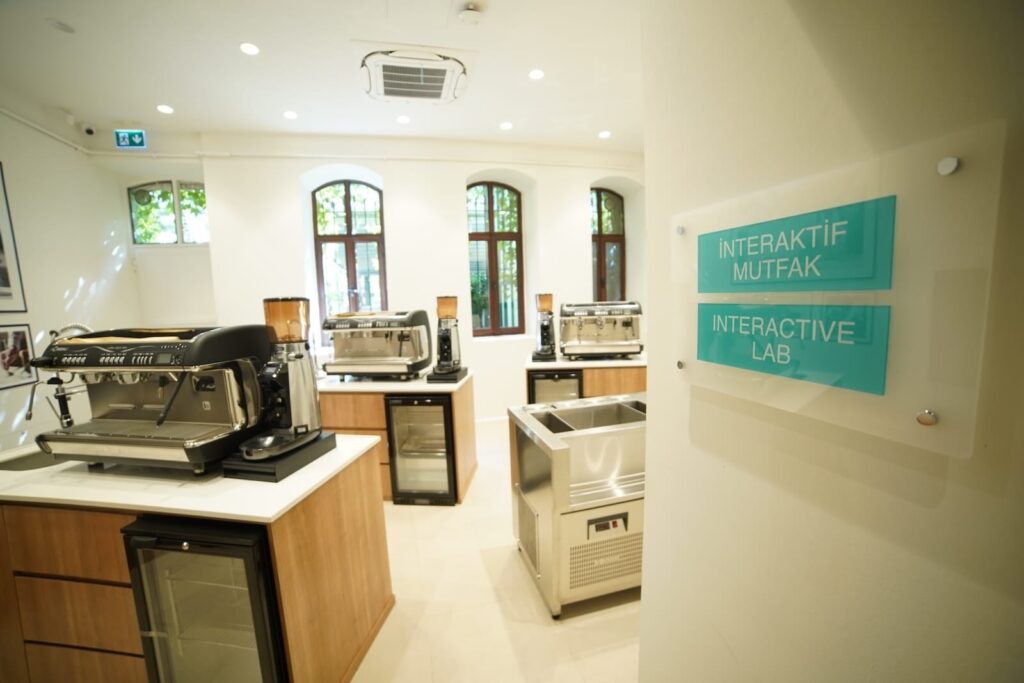F&B SERVICE PROFESSIONAL
This program provides participants with the competence to work successfully in the restaurant industry. Graduates will acquire all the necessary knowledge about the daily operations of restaurants with a variety of concepts.
Program Scope
In-depth understanding of the tools needed to run a food and beverage establishment.
Acquiring the competencies to work in various types of restaurants.
Ensuring readiness for both daily service and events.
Anticipating the needs of the guests and takeing the necessary actions.
The ability to take and manage reservations, take and manage orders, and handle cash registers.
To ensure good command of hygiene and occupational safety.
Use of equipment and tools correctly and economically and to ensure their protection
Program Outcomes
The certificate of participation (program completion certificate for those who complete three terms) will enable participants to find a place in the industry from entry level to management levels.
Educators
Facilitators have completed the VET by EHL trainer course and have received a certificate from EHL.
COURSES
Training Center, Apprenticeship and Micro Training courses are identical, and the total training hours vary according to the model to be selected.
| FOUNDATION | INDERMEDIATE | ADVANCED |
| F&B Service Techniques I Beverage Knowledge History & Practice of Coffee & Tea Restaurant Sales Techniques Introduction to Hospitality Operations Mathematics Fundamentals Introduction to F&B Customer Service Hygiene & Occupational Health Practices English Essentials | F&B Service Techniques II Basics of Oenology F&B Department Operations Goods Management for F&B Introduction to Office Tools Customer Service Excellence Verbal & Non-Verbal Communication Basics of Culinary Arts Applied English | F&B Service Techniques III Wine and Spirit Appreciation and Pairing MICE and Events Organization F&B Administration Principles People Training and Development Cultural Awareness Principles of Restaurant Marketing F&B Pop-up Concept Creation Professional English |

TRAINING CENTER MODEL
Designed to prepare participants for professional life.
Each level can be attended separately in line with personal goals and work experience. The duration of each level is six months, full-time, and a certificate of participation is awarded upon completion.
Upon successful completion of the foundation, intermediate and advanced levels, a certificate of program completion is awarded.
| LEVEL | FOUNDATION | INTERMEDIATE | ADVANCED |
|---|---|---|---|
| SÜRE | 6 Ay Tam Zamanlı: 3 Ay Teorik Eğitim (390 Saat) 3 Ay Staj Eğitimi (390 Saat) | 6 Ay Tam Zamanlı: 3 Ay Teorik Eğitim (390 Saat) 3 Ay Staj Eğitimi (390 Saat) | 6 Ay Tam Zamanlı: 3 Ay Teorik Eğitim (390 Saat) 3 Ay Staj Eğitimi (390 Saat) |
| TOTAL HOURS | 780 Hours | 780 Hours | 780 Hours |
| KİMLER KATILABİLİR | En az lise mezunu Deneyim sahibi olmayan kişiler | Aşağıdaki tüm koşullar karşılanmalıdır:
En az lise mezunu Başlangıç seviyesini bitirenler veya eğitim merkezi tarafından düzenlenecek seviye atlama sınavında başarılı olanlar 1-2 yıllık iş deneyimi olan kişiler | Aşağıdaki tüm koşullar karşılanmalıdır: En az lise mezunu Başlangıç ve Orta seviyeyi bitirenler veya eğitim merkezi tarafından düzenlenecek seviye atlama sınavında başarılı olanlar 3+ yıllık iş deneyimi olan kişiler |
| KAZANIMLAR | Başlangıç seviyesinde sektöre atılabilir veya Orta seviyeye devam edebilir | Sektöre atılabilir veya İleri seviyeye devam edebilir | 1-2 yıl iş tecrübesinden sonra orta / üst düzey pozisyonlar için aday olabilir |
APPRENTICESHIP MODEL
Intended for participants who are active working professionals.
Each level can be attended separately in line with personal goals and work experience. The duration of each level is six months, with theoretical training one day of each week.
Upon successful completion of the foundation, intermediate and advanced levels, a certificate of program completion is awarded.
Participants receive classroom-based theoretical training one day of each week, and can continue their professional work on the remaining days.
| LEVEL | FOUNDATION | INTERMEDIATE | ADVANCED |
|---|---|---|---|
| DURATION | 6 months, with theoretical training 1 day of each week | 6 months, with theoretical training 1 day of each week | 6 months, with theoretical training 1 day of each week |
| TOTAL HOURS | 120 Hours | 120 Hours | 120 Hours |
| ELIGIBLE PARTICIPANTS | Participants with no prior experience High school graduate or higher | All of the following conditions must be met: High school graduates (or higher) who have completed the Foundation level, or have passed the placement test to be organized by the training center 1-2 years of work experience | All of the following conditions must be met: High school graduates (or higher) who have completed the Intermediate level, or have passed the placement test to be organized by the training center 3+ years of work experience |
| OUTCOMES | Participants can choose to enter the industry at Foundation level, or proceed to the Intermediate level | Participants can choose to enter the industry, or proceed to the Advanced level | Participants can be eligible for mid / senior level positions after 1-2 years of work experience |
MICRO TRAINING MODEL
Intended for participants who are active working professionals. Allows them to focus on areas they would like to specialize in.
Participants can pick particular courses from the course list that they would like to specialize in
A certification of participation is awarded upon successful completion of each course.
| LEVEL | FOUNDATION | INTERMEDIATE | ADVANCED |
|---|---|---|---|
| DURATION | 20 hours per course | 20 hours per course | 20 hours per course |
| ELIGIBLE PARTICIPANTS | Working industry professionals | Working industry professionals | Working industry professionals |
| OUTCOMES | Expertise in chosen subjects | Expertise in chosen subjects | Expertise in chosen subjects |
Participants graduate with skills, competencies and qualifications appropriate to the needs of a variety of concepts in the industry.
